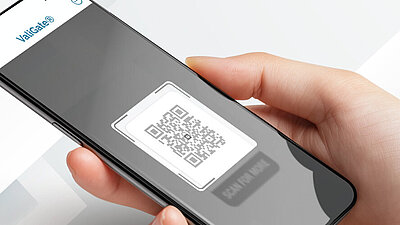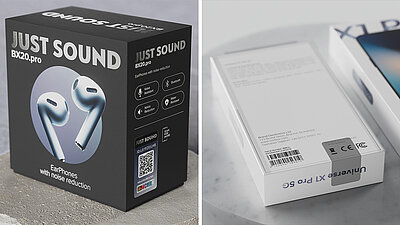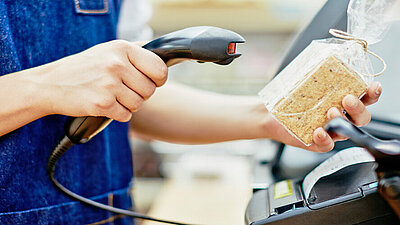The dangers of counterfeit sneakers and what brands can do about it

Emerging from its origins in hip-hop and sports, the sneaker culture has evolved into a global phenomenon encompassing streetwear fashion and collectibles.
However, skyrocketing sales have also attracted counterfeiters to this lucrative market segment. Counterfeit sneakers have become a rampant issue in the sneaker industry, with many consumers unknowingly purchasing fake versions of popular and expensive brands. These knockoff shoes are often made with subpar materials and poor craftsmanship, leading to a lower quality product that are harmful to the consumer and negatively impact both the reputation and revenue of the original brand. It is therefore crucial for brands to combat this issue head on.
The sneaker market
The global sneaker market has experienced explosive growth in recent years, with global sales reaching over $78.8 billion in 2023, which accounts for 19% of the total footwear sales. Worldwide sneaker revenue is projected to grow at a compound annual growth rate (CAGR) of 5.3% over the next 5 years and is expected to reach $98.1 billion in 2028. This surge in popularity can be attributed to a growing interest in athleisure fashion, celebrity endorsements, and limited edition releases from popular brands such as Nike, Adidas, and Jordan. According to data from 2022, Nike leads the global sneaker revenue with $28 billion, followed by Adidas $13.4 billion.
However, within this booming industry lies a lucrative secondary market known as the sneaker resale market. This market is estimated to be worth around $2 billion globally, with prices for rare and coveted sneakers often reaching thousands of dollars. The sneaker resale market differs from the primary retail market in that it is driven by scarcity, exclusivity, and hype. Sneakerheads and collectors are willing to pay a premium for hard-to-find or limited edition sneakers, making the resale market a competitive and fast-paced environment.
Leading brands such as Nike, Jordan, Adidas, New Balance, and Converse dominate the resale market. However, as the market matures, opportunities are emerging for mid-tier and niche brands to establish themselves. Brands like Hoka and Salomon are gaining traction, with Hoka achieving a remarkable 90.8% year-on-year sales growth in 2023.
The rise of online platforms such as StockX and GOAT has made it easier for buyers and sellers to connect and engage in the resale market, while social media platforms like Youtube and Instagram play a significant role in hyping up different models.
Investment bank Cowen predicts the resale market will reach $30 billion in sales by 2030, and resale platform StockX reported record-breaking sales in 2022, indicating the enduring popularity of sneaker culture.
Anti-counterfeiting in the sneaker industry
While the legitimate sneaker market is continuing its steady growth, counterfeit producers are keeping pace, threatening its future. According to a report by fitness trend reporter RunRepeat, the counterfeit sneaker market in the previous year was estimated to be valued at $450 billion, surpassing the legitimate market by more than five times.
Footwear ranks among the most counterfeited industries, with U.S. Customs and Border Protection seizing nearly $96.7 million worth of counterfeit footwear in 2021, up from $63.1 million the year before. In 2021, counterfeit footwear came in third after handbags and clothing in terms of seized items, a significant rise from its position as the sixth-most-seized category just three years prior.
Europe is also grappling with a surge in counterfeit sneakers, with a steady influx of fake shoes making their way through Hamburger Hafen in Germany on a daily basis. Customs officials are only able to inspect a mere 3% of the containers that arrive at the port, creating a significant loophole for counterfeiters to exploit. This limited inspection capacity allows counterfeiters to continue their illegal activities with minimal risk, as they only need to account for a small percentage of potential interceptions.
One of the main reasons why counterfeit sneakers have become so prevalent is the demand for high-end brands at a lower price point. Sneaker culture has exploded in recent years, with limited edition releases selling out within minutes and resale prices skyrocketing. This has created a market for counterfeiters to exploit, producing fake versions of popular styles that can be sold for a fraction of the cost of the real thing. Furthermore, the rise of online marketplaces and social media platforms has made it easier for counterfeiters to reach a wide audience and sell their fake products to unsuspecting consumers.
In response, online resale companies like eBay, StockX, and GOAT have enlisted sneaker authenticators to safeguard their transactions, assuring customers that the sneakers sold on their platforms are verified. For years, StockX was at the forefront of authentication, having certified all of its products since the company was founded in 2016. But in 2022, StockX was embroiled in a lawsuit with Nike, which sued the online marketplace for allegedly selling counterfeit shoes.
EBay has also been trying to fight the issue, debuting its own Authenticity Guarantee (AG) program in October 2020. In 2021, eBay was designated as the authorised authentication service at SneakerCon, a mobile event catering to sneaker enthusiasts for buying, selling, and trading footwear. Following the initiation of its authentication program, eBay experienced a significant increase in the gross merchandise value of sneakers on its platform, registering triple-digit growth. However, consumers f.ex. on Reddit have shared subpar experiences with its authentication service.
What is the issue with counterfeit sneakers?
Counterfeit sneakers are often made in sweatshops in developing countries, where workers are paid low wages and forced to work in unsafe conditions. The materials used in these fake shoes are often of poor quality, leading to discomfort and potential health risks for the wearer. In addition, counterfeit sneakers do not go through the same rigorous quality control measures as authentic brands, leading to issues such as poor fit, lack of durability, and even potential safety hazards.
Not only do counterfeit sneakers harm consumers, but they also hurt the original brands they are imitating. Counterfeiting takes away sales from legitimate companies, leading to lost revenue and damage to the brand's reputation. In addition, counterfeit shoes can also be sold in ways that support criminal organizations and human trafficking, further perpetuating the negative impact of counterfeit goods.
Another major issue for brands is the unauthorised production with third-party producers in Asia. Often, the operating hours of the machines are extended or a third shift is simply operated at night. Consequently, these products end up in the counterfeit market, even though they are manufactured using the brand’s original materials. This is a well-known problem and is frequently encountered in third-party production.
How can brands fight this issue?
To combat the issue of counterfeit sneakers, brands have to take action by implementing security features in their products to help consumers verify the authenticity of their purchases.
Unique Identification:
Incorporate distinctive security labels or markings on sneakers to provide a clear visual indicator of authenticity, making it easier for customers to differentiate genuine products from counterfeit ones.
We offer various security labels to fit your specific requirements. Our cutting-edge security labels and features are created using proprietary technologies, ensuring high-level protection against counterfeiting. From easily identifiable features for consumers to concealed elements for experts, our labels provide maximum security for all target groups.
Our PrioSpot® and VeoMark® labels combine 100% overt, semi-covert and covert features for maximum counterfeit protection. There has been zero successful imitation attempts of these security features in over 20 years.
Our ValiGate® label provides a secure and serialised solution to verify product authenticity and prevent counterfeiting. Its patented security pattern embedded in the QR code ensures it cannot be replicated or re-engineered. The one-click authentication process, accessible without an app, allows users to easily verify the authenticity of products using their smartphone camera.
ValiGate® Green is a sustainable option made from 100% compostable materials, maintaining high security levels while also aligning with brand owners' sustainability goals. Like the original ValiGate®, it offers reliable product authentication without the need for an app.
ValiGate® Trust not only provides unmatched protection against counterfeiting, but also combines our secure, copy-proof QR code with a KURZ Trustseal for an attractive appearance at the point of sale. This dual approach not only discourages counterfeiters, but also boosts scan rates and increases customer engagement.
ValiGate® Direct Print incorporates our unique ValiGate® security marking directly into your packaging or labels using standard printing methods, which enhances product security without adding extra production steps. This simplifies implementation and speeds up time-to-market.
Secure Packaging:
Utilize tamper-evident seals and labels on sneaker boxes or packaging to ensure that the product has not been altered or tampered with, thus safeguarding customers from purchasing fake sneakers.
Our HighPerSeal© ensures the security of your product and packaging throughout the entire logistics chain with easily recognisable evidence of initial opening. Once the tamper seal is opened or tampered with, it immediately displays a void effect that is irreversible. This first-opening effect remains visible even if an attempt is made to reseal the tamper-evident seal. Both the overall label design and the opening effect (void effect) can be fully customised to match your packaging design and corporate identity.
We also offer this sealing solution in a sustainable version. Our HighPerSeal© Green offers trusted security on a pure paper basis, eliminating the need for polymer films.
Digital Platform for Authentication, Volume Control and Track & Trace
Leverage our digital platform SCRIBOS 360 to transform counterfeit-proof product markings into a robust brand protection program that identifies counterfeits, grey market activities, and overproduction. The platform also includes features for digital customer engagement and brand loyalty initiatives.
Moreover, our digital platform offers volume control to address the challenges posed by the third shift. With our B2B Ordering platform, integrated into our SCRIBOS 360 system, brands can efficiently manage the production volumes of third-party producers. For instance, by providing only 1 million labels, the manufacturer in Asia is restricted to producing 1 million 'original' products. Any items lacking labels would be classified as 'NOT ORIGINAL', even if they come from the same factory.
As the demand for sneakers continues to rise, so does the importance of ensuring that consumers are able to purchase genuine products that meet the high standards of quality and safety set by legitimate brands. It is therefore crucial for consumers, brands, and authorities to work together to address the issue of counterfeit sneakers.
By leveraging our advanced security features and digital platform, sneaker brands can effectively protect their brand reputation, prevent counterfeiting, and provide customers with the confidence to purchase genuine products. This helps uphold the integrity of the sneaker industry and preserve the value of authentic footwear.




